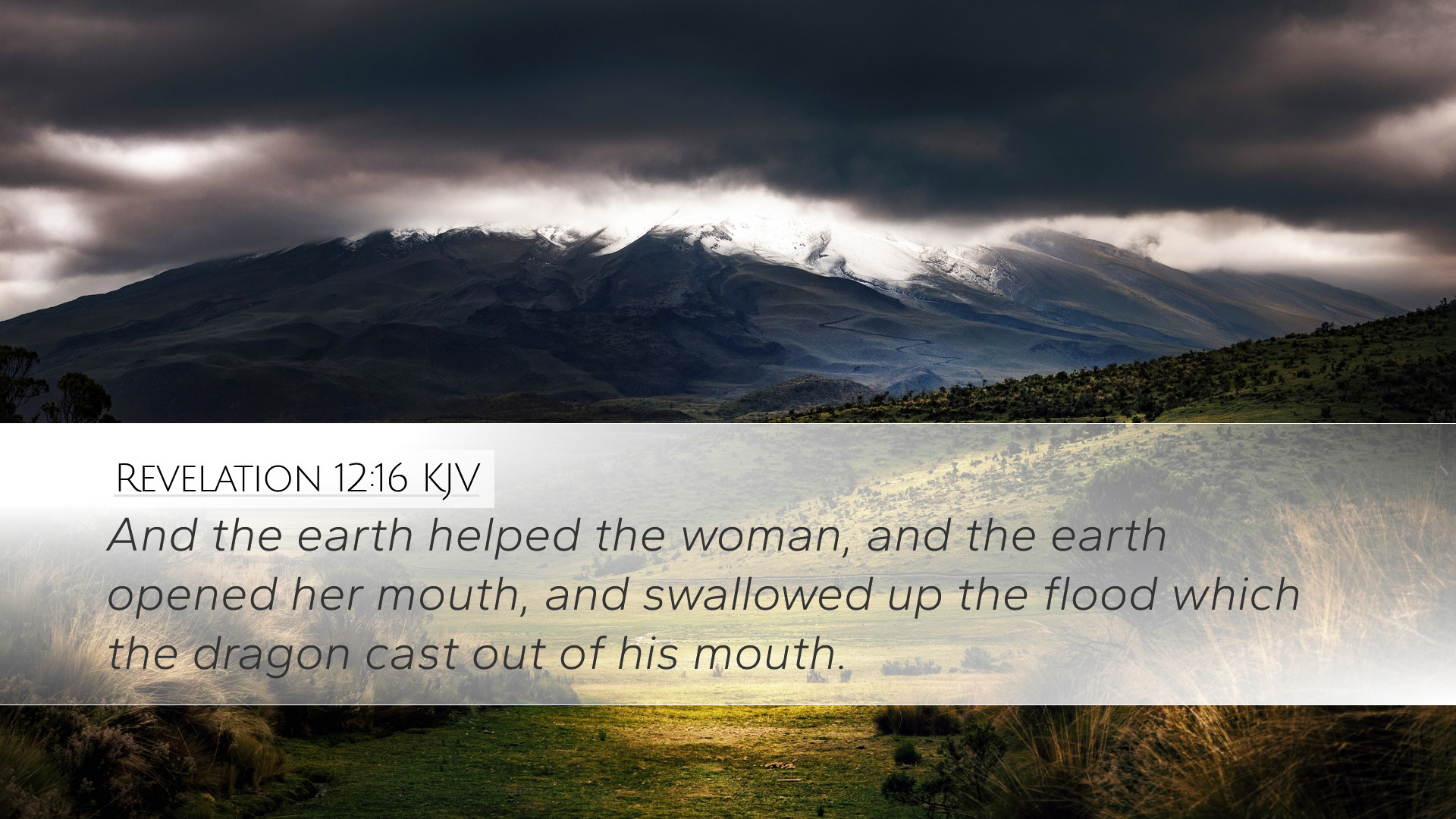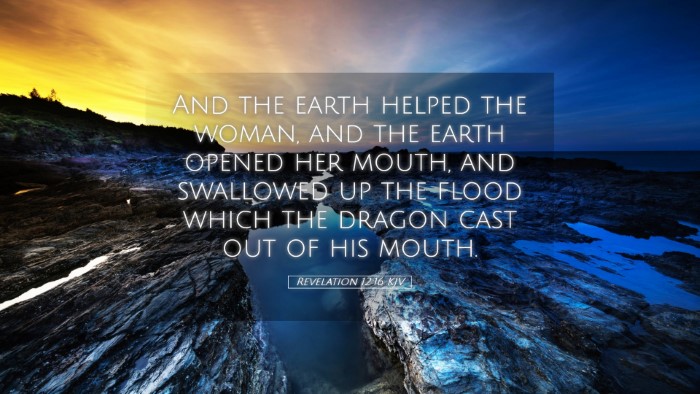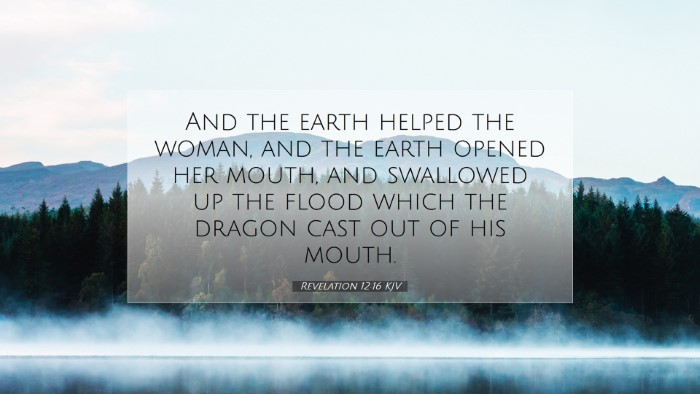Commentary on Revelation 12:16
Revelation 12:16 states, "But the earth helped the woman, and the earth opened her mouth and swallowed up the flood which the dragon cast out of his mouth."
Historical Context
The book of Revelation, written by John, is a profound apocalyptic vision meant to encourage believers amidst persecution.
This particular verse illustrates a moment of divine intervention where the created order responds to protect God's people.
Understanding this context is crucial for interpreting its meaning for both the original audience and contemporary believers.
Exegesis and Interpretation
This verse signifies a divine safeguard for the woman, who symbolizes God's faithful people.
The dragon, representing Satan, launches a flood—an image of opposition and persecution. The earth's swallowing of this flood can be seen as the environment or creation aiding in the spiritual battle.
Insights from Matthew Henry
Matthew Henry emphasizes that the earth opening its mouth signifies God's providential care.
He interprets the flood as a metaphorical attack by the dragon, symbolizing various trials and tribulations that the believers face.
Henry notes that while the fury of Satan is relentless, God's intervention can curb these assaults, showcasing His power and willingness to protect His people.
Insights from Albert Barnes
Albert Barnes elaborates on the imagery presented in this verse, asserting that the 'earth' represents God's creation, which often acts in favor of those who trust Him.
He draws parallels to the Old Testament narratives where nature aids in the deliverance of God’s people, highlighting that the earth's response is a manifestation of divine authority and protection.
Insights from Adam Clarke
Adam Clarke provides a unique exposition suggesting that the flood represents false doctrines and persecution spewed by the dragon.
He interprets the swallowing of the flood as not only an act of divine protection but also as a promise that such malevolent forces will ultimately be subdued and voided by God’s creations.
Theological Implications
The theological implications of this verse are profound.
It asserts that God remains sovereign even amidst chaos and that creation itself can serve as an agent of His will.
This teaches the faithful that they are not forsaken in their struggles; God actively engages in their protection and deliverance.
Application for Believers
- Trust in Divine Protection: Believers are encouraged to trust in God's providence during trials.
- Awareness of Spiritual Warfare: The verse serves as a reminder of the ongoing spiritual struggles between good and evil.
- Hope in Divine Deliverance: It reassures believers that despite formidable opposition, God can and will provide a way of escape.
- Responsibility of Creation: The image of the earth assisting the woman prompts reflection on humanity's relationship with creation.
Conclusion
Revelation 12:16 stands as a powerful testament to God's protective nature and His ultimate authority over creation.
By synthesizing insights from various public domain commentaries, we are reminded that God remains ever-vigilant in the lives of His people, guiding and shielding them against the roaring adversary.
This verse, rich in symbolism and meaning, invites ongoing exploration and application for pastors, theologians, and scholars alike.


